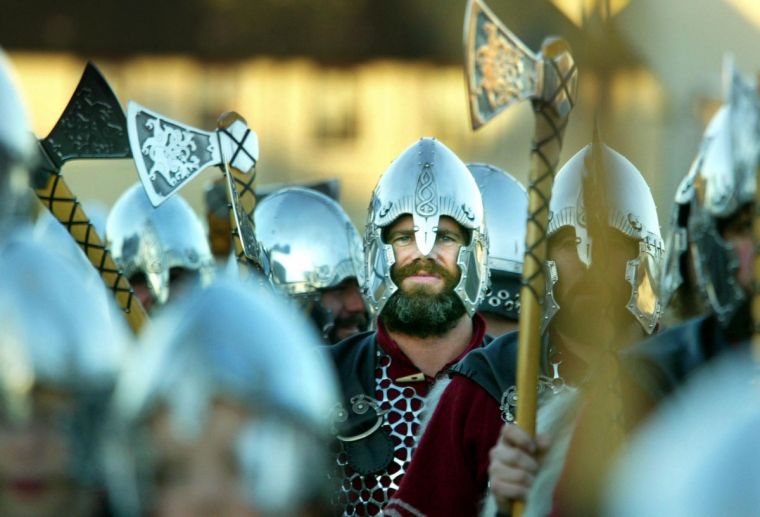Independence for Shetland and the islands of Scotland? Not just yet, say locals

While the Scottish independence debate is in full swing, the possibility of further separation is being floated as a petition makes its way to Holyrood.
'Referenda', a group of residents on the Shetland, Orkney, and Western Isles have lodged a petition with the Scottish Parliament to hold a referendum on their political future, to be held one week after the Scottish referendum on independence on 18 September.
If they are successful, the referendum will pose three questions:
1. Do you wish the island group become an independent country?
2. Do you wish the island group stay in Scotland?
3. Do you wish the island group to leave Scotland and stay in the remainder of the UK?
Explaining the reasoning behind this move, the petition states: "Whether you live in Shetland, Orkney or the Western Isles, you will know that your part of the world was once in Norway and still has its own traditions and culture which set it apart from the rest of what is now Scotland."
The Orkney and Shetland islands were under Norwegian control for six hundred years. The Norwegian king Harald Fair Hair, annexed both island groups in 875. It was only in 1468 that they were given back to Scotland as the dowry of Margaret, daughter of Norwegian king Christian I, who was given to be married to James III of Scotland.
Tavish Scott, the Liberal Democrat MSP for Shetland, said that he welcomed the petition. Speaking in The Times, he said: "Once the referendum genie is out of the bottle people will realise that Shetlanders' views are very different from those held by central belt nationalists."
Catriona Murray, secretary of the Referenda on the Islands, was quoted in the Orcadian saying: "We have been overwhelmed by the amount of support.
"We believe that it is up to islanders to decide, and that now is the time to do so. Our own group includes supporters of all three options."
The petition has so far attracted 600 signatures, less than 1 per cent of the 70,000-strong population across the islands. Campaigners are hoping to gather as many signatures as possible before the closing date on April 28. Unlike the Westminster Parliament, there is no signature number threshold for discussion in the Scottish Parliament.
Ms Murray is optimistic and believes the current rate of signatures is sufficient to guarantee a substantial victory.
"We predicted that 1,000 signatures, equivalent to 2 per cent of the combined island electorate, would be sufficient for the Scottish Parliament to debate the issue," she said.
"But if this momentum continues, we will get 10,000 or more. The Scottish Government will then have no option but to hold the referenda. The only things left to debate will be the details of implementation and which option will be best to vote for."
Some church leaders Christian Today spoke to seemed perplexed by the campaign, others were unaware of its existence.
One church leader from Lewis, who did not wish to be named, likened it to an April Fool's Day prank.
Another church leader from the area said: "That's not going to happen. That's just a piece of nonsense."
Nigel Barton, a Methodist preacher based in the Shetlands said: "It's not something that's been consulted about. We know we want to work more closely with the district of Scotland, so that may be a factor, but as of yet independence for the islands isn't something we have a clear opinion on."
Donald Campbell, a Church of Scotland minister for Berneray and Lochmaddy in the Western Isles, said: "With rural areas like the west coast and the northern islands, they'd still need the support of the mainland to keep themselves going."
If the islands did ever gain independence, they would join the ranks of the world's smallest nations, alongside the likes of Saint Kitts and Liechtenstein, although they would still be more populated than the autonomous Faroe Islands in the North Sea.
Speaking about whether such an idea has taken hold in the local imagination, Mr Campbell said: "It's not anything that people are talking about or discussing in any meaningful way."
Commentators on the petition's own website have also been offering opinions. Ian Leask posted: "This petition should be stopped at once, this is just an attempt by unionist to cause trouble."
Russell Hogben however comments in favour of the referendum, and island independence: "I think the islands have to right to self-determination. Scotland says it owns the oil in the North Sea but actually a great deal of it belongs to Shetland."
Gregor McIntyre gave the petition page his opinion: "If Scotland sleepwalks in the nightmare of independence, I fully support Orkney, Shetland and the Western Isles to stay within the United Kingdom!"
John M Graham posted: "We should make in-roads to associate ourselves with Norway and there [sic] culture which for obvious reasons are similar to our own."











